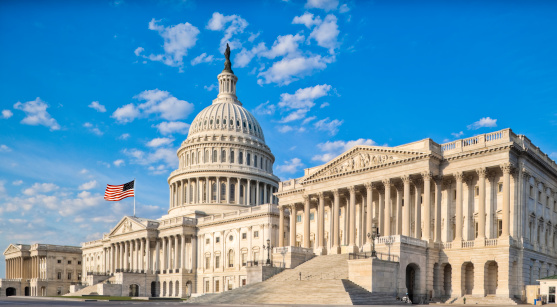On October 8, the higher education community, including CGS, sent a letter to Congressional leaders about concerning provisions in the National Defense Authorization Act (NDAA). The community is specifically concerned about foreign influence related provisions.
On June 7, the higher education community, including CGS, sent a letter to the House Rules Committee opposing the inclusion of the Bipartisan Workforce Pell Act and the DETERRENT Act in the National Defense Authorization Act (NDAA). The letter urges committee members to oppose the amendments and move them through the regular legislative process.
On May 22, the higher education community, including CGS sent a letter to Congressional leaders on ways to improve the FASFA process. The letter urges Congress to address recent problems created by the FASFA delays and to guard against similar problems in the future. The letter requests that Congress conduct a long-term assessment of how the recent FAFSA delays have impacted students, particularly those who are low-income, as well as the effects on institutions.
On February 27, the higher education community sent a letter to Speaker of the House Mike Johnson (R-LA) and Democratic Leader Hakeem Jeffries (D-NY) expressing their strong opposition to Section 6 of H.R. 6585, the Bipartisan Workforce Pell Act. The letter asks for the House to postpone any votes on the bill until concerns within Section 6 are addressed.
On January 30, the higher education community sent a letter to the House Committee on Education & the Workforce regarding the College Cost Reduction Act (CCRA). The proposed bill outlines significant changes to federal student aid, including a cap on loan limits, the elimination of GRAD and Parent Plus Loans, and adjustments to repayment options.
On December 4, the higher education community sent a letter opposing the DETERRENT Act to the House Leadership. The letter urges House Members to oppose the bill and revisit sections within the proposed legislation, including duplicative data collection requirements.
On November 6th, the higher education community sent a letter to the House Committee on Education & the Workforce regarding the Defending Education Transparency and Ending Rogue Regimes Engaging in Nefarious Transactions (DETERRENT) Act. This bill would require that universities report any gift or contract over $50,000, unless funding came from a country of concern which would require any amount to be reported and an approved waiver requested.
On September 21, the higher education community sent a letter to House and Senate Conference Committee members concerning the National Defense Authorization Act. Specifically, the letter calls on conferees to remove problematic provisions from the bill. These provisions would require graduate students and postdoctoral scholars engaged in Department of Defense research to disclose personal information on a publicly available website and require a cost share of 25-percent for DOD awards.
The Council of Graduate Schools submitted written testimony to the Senate Appropriations Subcommittee on Labor, Health and Human Services, Education, and Related Agencies regarding the importance of funding programs at the Department of Education and the National Institutes of Health.
The Council of Graduate Schools and 260 other organizations sent a letter to Congress to reject Republican efforts to use the Congressional Review Act to block President Biden’s debt relief plan.
The Council of Graduate Schools submitted written testimony to the House Appropriations Subcommittee on Labor, Health and Human Services, Education, and Related Agencies regarding the importance of programs at the Department of Education and the National Institutes of Health that positively impact graduate education.

